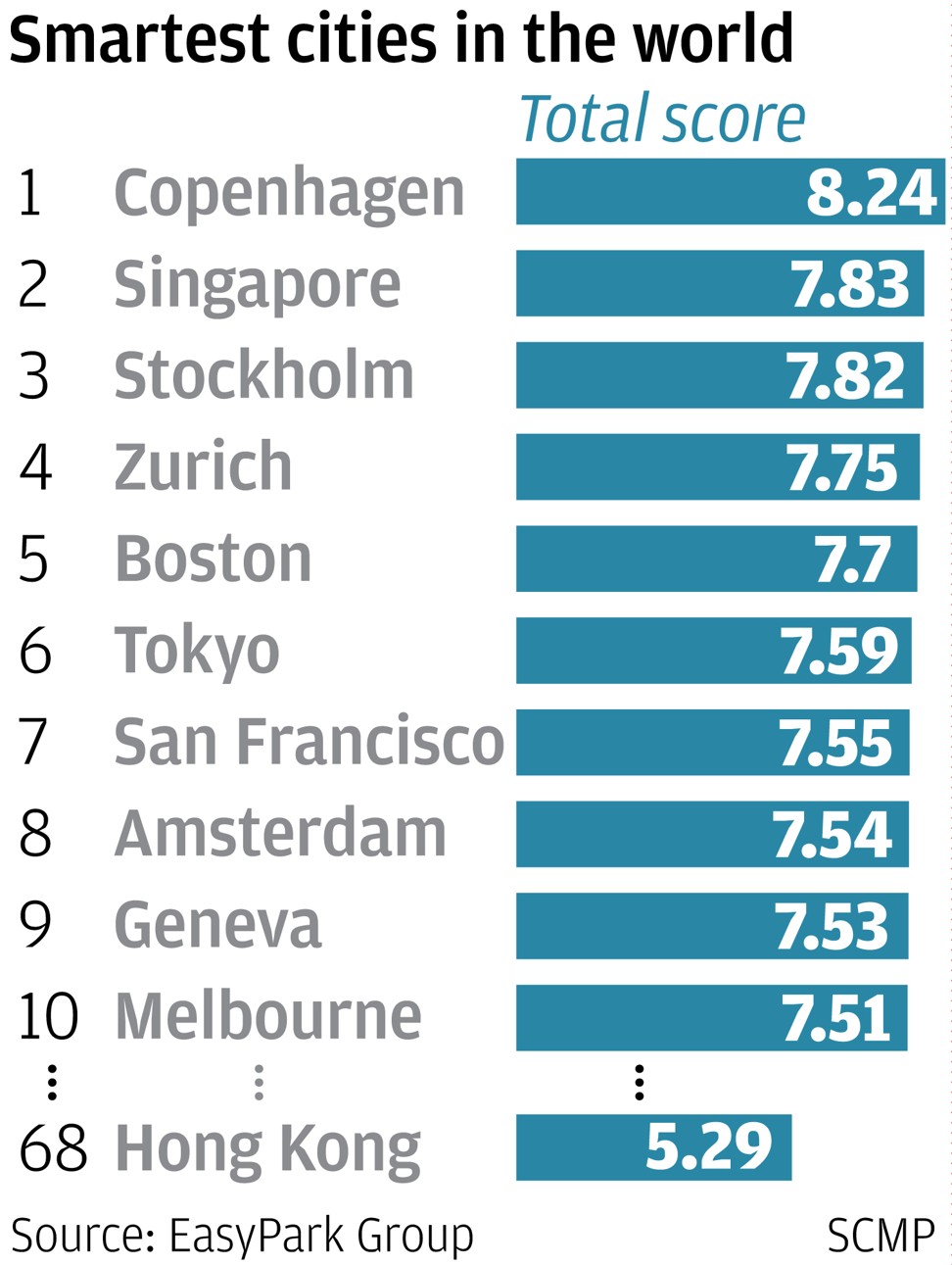
Why is Singapore much smarter than Hong Kong? City left trailing rival in global technology index
Despite HK$1 billion in government cash to improve smart technology, Hong Kong scores lower than several other Asian cities including Tokyo, Seoul, Osaka and Taipei

Hong Kong has been ranked 68th in a global smart city index – way behind its main rival Singapore, which came in second, and trailing its neighbours in the region like Taipei, Tokyo and Seoul.
Despite recent efforts by the government to make the city smarter, Hong Kong scored poorly in several factors including transport and mobility, sustainability, innovative economy, digitisation, and experts’ perception.
The city also lost out for its lack of car-sharing services, such as Uber, and the low level of “citizen participation”, sitting at fifth from bottom in both categories.
Copenhagen topped the list in the 2017 Smart City Index, compiled by Swedish firm EasyPark, which provides smart parking solutions in 10 markets in Europe and Australia. Drawing data from the UN and the European Commission, researchers assessed more than 500 cities worldwide on 19 factors.
Hong Kong scored 5.29, compared with 8.24 for the Danish capital, 7.83 for Singapore and 7.82 for Stockholm, which was ranked third.
In Asia alone, Hong Kong was behind Tokyo, Seoul, Osaka, Taipei and Daejeon.
Francis Fong, honorary president of the IT Federation, a trade association, said the ranking showed Hong Kong had a lot of work to do before it could become a smart city.
“We started too late. I don't see a straight idea on how to make the city smart,” he said.
“We’re trying to do everything at once, but we are too small and we don’t have enough people to fill technology [jobs], even from universities.”
Fong added that the government needed to rethink its investment strategy. Instead of pouring money into the Disneyland theme park “that may or may not give a return in three or four years”, the government could have used that money to jointly develop a research centre with the biggest technology companies in the world, to raise Hong Kong’s technological level and profile, Fong suggested.
In May, the government approved a HK$5.45 billion expansion of Disneyland, which will be paid for by taxpayers. The government is the theme park’s majority shareholder.
Despite the common perception that Hong Kong’s public transport is reliable and efficient, it was only ranked 62nd on that front.
The poor performance came despite the Hong Kong government’s declared commitment to develop the place into a smart city. Apart from funds of at least HK$1 billion, a government-commissioned study in June spelt out ambitious plans, including a four-phase maturity model which it said would see Hong Kong become a “world centre for innovation” by 2027 to 2030.
The government plans to release its first smart city blueprint in the third quarter of next year.
Fong welcomed specific details of the blueprint, but said that other countries were already implementing smart city programmes, while Hong Kong was still at a planning stage.